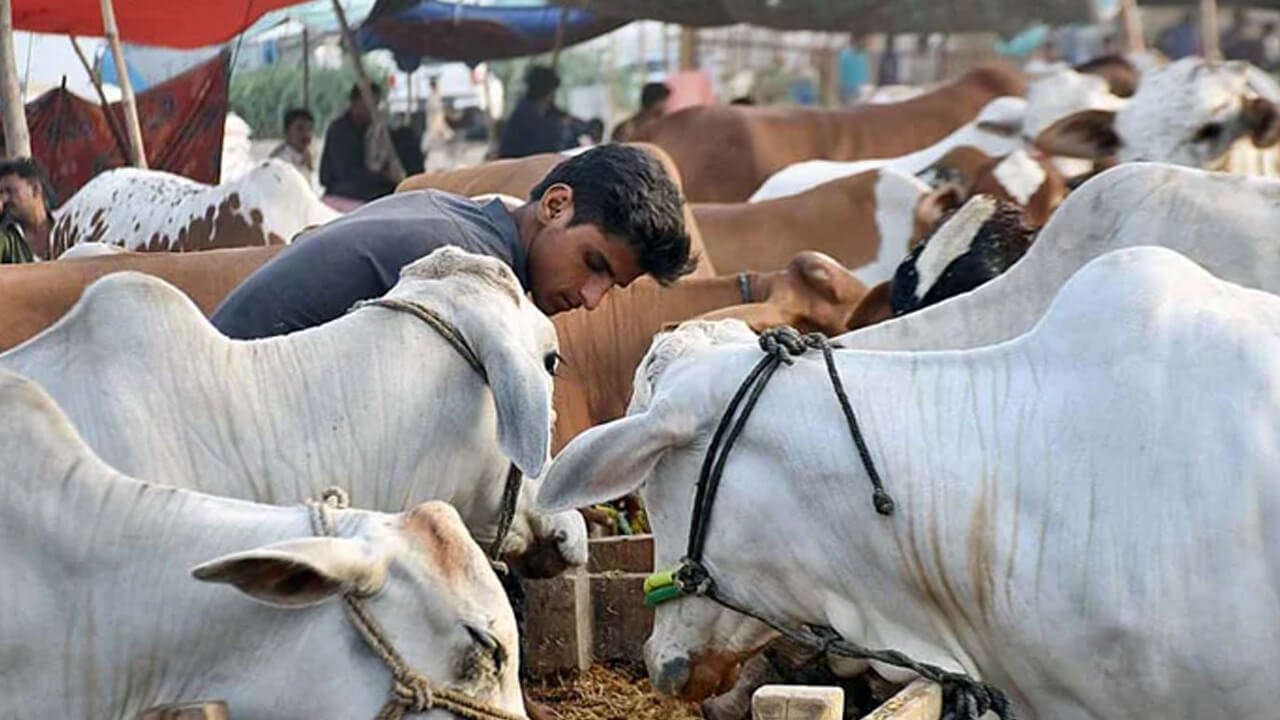Every year, when the festive season of Eid-ul-Adha arrives, Karachi witnesses multiple disease outbreaks caused by the decaying entrails of sacrificial animals left unpicked for several days on every corner of its streets, roads, and highways. This situation paves the way for swarms of flies and mosquitoes, which, in turn, expedite disease transmission.
Off The School on Sunday invited a religious scholar and medical officer to a webinar to discuss health and hygiene issues related to the occasion of Eid-ul-Azha. Islamic scholar and educator Hafeez-ur-Rehman highlighted the fact that people are not fully aware of the significance of sacrifice and, more importantly, cleanliness in Islam. On the other hand, the role of authorities is unapologetically incompetent.
Sharing his concerns about a spike in cases of typhoid, gastroenteritis, diarrhea, malaria, and respiratory diseases that emerged days after Eid, medical officer at Jinnah Hospital, Dr. Usama Ahmed Ansari, shared protective measures for the public to avoid the transmission of diseases. Here are a few major takeaways from the webinar:
Masking Up, Gloving Up, and Sanitization: Key Measures for Safety
Dr. Ansari emphasized wearing face masks and hand gloves when coming in contact with sacrificial animals. “By taking these measures, people can protect themselves from contagious skin diseases,” he added.
He further advised people to continue wearing masks even after Eid, considering the chances of airborne disease transmission. “One must ensure to keep sanitizing oneself,” he explained.
Eating Healthy Meal: Cooking with Care
Dr. Ansari also suggested cooking meat to the optimum temperature to ensure that bacteria, parasites, and other pathogens are killed. “Eating raw or undercooked meat can lead to fatal conditions such as diarrhea and gastroenteritis,” he stated.
Meanwhile, the doctor said that the everyday intake of meat, especially beef, is not encouraged by the medical community. “You can either skip meat twice or thrice a week or consume it by mixing it with light meals including pulses and beans.”
‘Cleanliness Is Half of Faith’
Hafeez-ur-Rehman said that Muslims have forgotten the real essence of the sacrifice of Prophet Ibrahim (AS). “We indulge ourselves in the festivity so much that we forget we are violating the core values of our religion, which are cleanliness and the rights of other human beings or our social responsibility,” he expressed.
He pointed out that offals and blood of sacrificial animals that are left untreated by people are causing miseries to the city while authorities do not pay heed to the situation. Rehman reminded the audience of the Quranic message that neither the flesh nor the blood of the animal reaches Allah (SWT), but it is your Taqwa (Piety or God consciousness) that does so.
“Prophet Muhammad (PBUH) advised his companions (RA) against blocking pathways en route to perform Jihad in order to avoid inconveniencing common people,” he narrated. Rehman further expressed regret for the situation where, as Muslims, we are entitled to block roads and streets in the name of sheltering or hosting cattles. The guests concluded that government, civil society, and religious leaders can together bring an end to this societal collapse.





